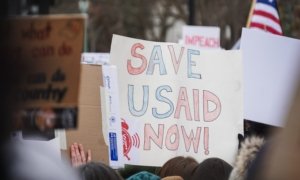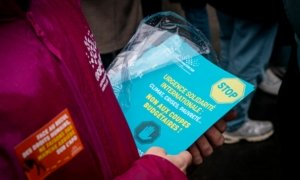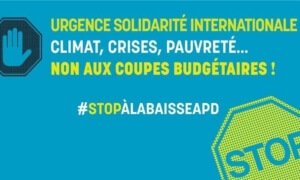le 10/12/2024
European Commission – Capacity Building Programme for Youth in Neighborhood East
The European Commission is inviting applications for the capacity building programme aimed at supporting international cooperation in the field of youth and non-formal learning, as a driver of sustainable socio-economic development and well-being among youth organisations and young people.
Capacity-building in the field of youth projects are international cooperation projects based on multilateral partnerships between organisations active in the field of youth in the EU and countries associated to the Programme, on the one hand, and in third countries not associated to the Programme, on the other hand.
Objectives
- The action targets organisations active in the field of youth and aims at:
- raising the capacity of organisations working with young people outside formal learning;
- promoting non-formal learning activities in the eligible third countries not associated to the Programme, especially in organisations that target young people with fewer opportunities, and foster the participation of young people in all their diversity, with a view to improving their level of competences and opportunities to act, thus enabling them to ensure the active participation of young people in society;
- supporting the development of youth work in the eligible third countries not associated to the Programme, improving its quality and recognition;
- fostering the development, testing and launching of schemes and programmes allowing organisations to enhance non-formal learning mobility in the eligible third countries not associated to the Programme;
- supporting organisations in the eligible third countries not associated to the Programme to contribute to the implementation of the EU Youth Strategy (2019-2027) including the 11 European Youth Goals; the European Youth Work Agenda; the Youth Action Plan in the EU External Action (2022-2027), including the Africa-Europe Youth Academy; and to the follow-up of the European Year of Skills launched in 2023;
- fostering cooperation through joint initiatives between youth organisations of, on the one hand, EU Member States and third countries associated to the programme, and, on the other hand, third countries not associated to the programme in the different regions of the world eligible for this action;
- fostering participation of smaller organisations, as well as organisations from remote areas and smaller localities
- enhancing synergies and complementarities of youth organisations working with young people outside formal learning with formal education systems and/or the labour market.
Thematic Areas
- Proposals should focus on supporting youth organisations working with young people outside formal learning in one or more of the following thematic areas:
- political participation, civic engagement and dialogue with decision-makers;
- inclusion of young people with fewer opportunities;
- democracy, rule of law and values, youth leadership;
- empowerment/engagement/employability of young people;
- peace and post-conflict reconciliation;
- environment and climate;
- anti-discrimination and gender equality;
- digital and entrepreneurial skills.
Deadline Date:
06 March 2025 17:00:00 Brussels time
Funding Information
- The maximum EU contribution per project is EUR 300 000.
- Projects should normally last between 12 and 36 months (extensions are possible, if duly justified and through an amendment).
Eligible Activities
- The activities proposed must be directly linked to the general and specific objectives of the action, i.e. they must correspond to one or more of the thematic areas listed above and they must be detailed in a project description covering the entire implementation period. Importantly, in the context of this international action, project activities must focus on building and strengthening the capacities of youth organisations, so that they are better equipped to support young people principally in the third countries not associated to the Programme covered by the action.
- Funded projects will be able to integrate a wide range of cooperation, exchange, communication and other activities of youth organisations working with young people outside formal learning that:
- contribute to encouraging policy dialogue, cooperation, networking and exchanges of practices;
- promote strategic cooperation between youth organisations on the one hand and public authorities, particularly in eligible third countries not associated to the Programme;
- promote the cooperation between youth organisations and organisations active in the education and training fields as well as with organisations active on the labour market;
- raise the capacities of youth councils, youth platforms and local, regional and national authorities dealing with youth, in particular in eligible third countries not associated to the Programme;
- enhance the management, governance, innovation capacity, leadership and internationalisation of youth organisations, particularly in eligible third countries not associated to the Programme
- support the development by youth organisations, particularly in eligible third countries not associated to the Programme, of information and awareness campaigns, as well as the development of information, communication and media tools;
- help youth organisations, particularly in eligible third countries not associated to the Programme, to develop youth work methods, tools and materials, including encouraging initiatives of co-creation and co-design of projects, allowing participatory project creation;
- help youth organisations, particularly in eligible third countries not associated to the Programme, to create new forms of delivering youth work and providing training and support; facilitate non-formal learning mobility.
- Examples of activities include:
- the development of tools and methods for the socio-professional development of youth workers and trainers;
- the development of non-formal learning methods, especially those promoting the acquisition/improvement of competences, including media literacy skills;
- the development of new forms of practical training schemes and simulation of real-life cases in society;
- the development of new forms of youth work, notably strategic use of open and flexible learning, virtual cooperation, open educational resources (OER) and better exploitation of the ICT potential;
- the organisation of events/seminars/workshops/exchange of good practice for cooperation, networking, awareness raising and peer-learning purposes
- the organisation of mobility activities for youth workers in order to test tools and methods developed by the partnership.
Expected Impact
- The granted projects should demonstrate their expected impact by improving the capacity of youth organisations, particularly in eligible third countries not associated to the Programme to:
- contribute to the ‘Engage-Connect-Empower’ priorities of the EU Youth Strategy 2019-2027 and the European Youth Work Agenda.
- building on outcomes of the European Youth Goals, the Youth Dialogue and other youth projects;
- improve the involvement of young people in democratic life, in terms of active citizenship and engagement with decision-makers (empowerment, new skills, involvement of young people in project design, etc.), in particular in the eligible third countries not associated to the Programme;
- improve the entrepreneurial and innovative capacities of young people in eligible third countries not associated to the Programme;
- work transnationally while ensuring inclusiveness, solidarity and sustainability;
- promote and contribute to transnational learning and cooperation between young people and decision makers, in particular in the eligible third countries not associated to the Programme;
- upscale existing practices and outreach beyond the partnership, including making good use of digital means to stay connected under all circumstances even in situations of remoteness, isolation or confinement;
- link their results to local communities, creating job opportunities and nurturing innovative ideas that could be replicated and scaled up in other settings in third countries not associated to the Programme;
- demonstrate inclusion and accessibility of target groups with fewer opportunities and individuals in third countries not associated to the Programme;
- develop new tools and non-formal learning methods, especially those promoting the acquisition/improvement of competences, including media literacy skills innovative practices, in particular in the eligible third countries not associated to the Programme;
- disseminate their results in an effective and attractive way among young people involved in youth organisations;
Eligibility Criteria
- In order to be eligible, the applicants (beneficiaries and affiliated entities, if applicable) must be:
- legal entities:
- NGOs (including European Youth NGOs and national Youth Councils) working in the field of youth or
- public bodies at local, regional or national level working in the field of Youth;
- other public or private organisations may also participate but not as coordinator.
- legally established in an EU Member State or third country associated to the Programme, or in third countries not associated to the Programme.
- legal entities:
For more information, visit EC.





A lire aussi
La malnutrition, un défi géopolitique global
Appel à projets pour les droits des filles et l’égalité de genre dans le monde
Bénévolat : Agir pour les droits des filles et l’égalité de genre